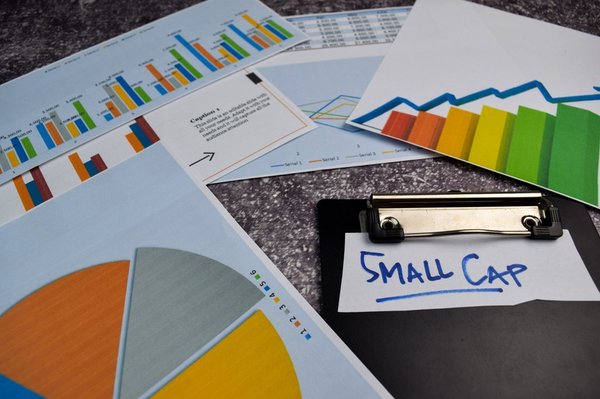Individual investors have a key advantage compared to their institutional counterparts -- their opportunity set is much larger. Small-cap stocks, which have a market capitalization between $300 million and $2 billion, are generally too small for investors like Warren Buffett, but they can be lucrative for retail investors.

Small caps have historically outperformed large-cap stocks like those in the S&P 500 index in bull markets. In fact, the small-cap Russell 2000 index moved higher to close out 2020, gaining 18.48% compared to just a 15.29% gain for the S&P 500. Income investors will also be happy to learn that some smaller companies pay dividends, ranging from high-yield value stocks to faster-growing small-cap stocks.
Below, we'll take a look at five of the best small-cap dividend players now available on the market.
| Company | Ticker | Market Cap | Dividend Yield |
|---|---|---|---|
| Calavo Growers | (NASDAQ:CVGW) | $472 million | 1.51% |
| Ethan Allen Interiors | (NYSE:ETD) | $844 million | 5.84% |
| B&G Foods | (NYSE:BGS) | $870 million | 6.87% |
| PetMed Express | (NASDAQ:PETS) | $100 million | 12.63% |
| Smith & Wesson | (NASDAQ:SWBI) | $79 million | 2.8% |
1. Calavo Growers
1. Calavo Growers
Calavo Growers may not be a household name, but you're likely familiar with its core product. Calavo, whose name comes from the first three letters of "California" and "avocados," is a leader in the global avocado industry, which has boomed during the past decade as the fruit has become a popular choice among millennials in dishes such as avocado toast and guacamole. It is considered a "superfood" by some.
The growing Hispanic population in the U.S., which is expected to double by 2050, is set to drive growth in avocado consumption since the tropical fruit is a staple food for many in that demographic.
Calavo stock followed breakout growth in avocados for a large part of the past decade as shares jumped as much as 350%, a rarity for an agriculture business. The stock has pulled back since the end of 2018, however, as avocado prices have fallen.
It has also faced some challenges related to the COVID-19 pandemic, although it's bounced off its 2020 lows. Because Calavo is a grower and also produces tomatoes and papayas, results tend to fluctuate with market prices, but the company is a stable, dividend-paying stock.
Calavo currently pays an annual dividend of $1.15, last paid out in November 2020, and the company has a history of raising it most years by roughly 5% to 10%. In 2020, management raised the dividend by 4.5% even though the company reported a net loss for the year on a generally accepted accounting principles (GAAP) basis. That's a sign of its commitment to the dividend, confidence that normal business will return, and that avocado prices should rise when the pandemic ends.
With promising long-term growth potential from exposure to the avocado market and a solid track record of dividend increases, Calavo appears to be a good bet for investors looking for both income and growth.
2. Ethan Allen Interiors
2. Ethan Allen Interiors
Home furnishings and home decor have boomed during the pandemic, and Ethan Allen is no exception. The stock has steadily rebounded since the lockdowns in spring 2020 and looks to be headed for further gains as it reported a record order backlog in the year-end quarter.
Supply chain challenges during the pandemic have weighed on the business, but demand is strong as retail orders rose 45% in the quarter and wholesale orders jumped 28%.
Ethan Allen is unique among public companies in home furnishings because it's a vertically integrated luxury company that provides complimentary interior design services.
Additionally, many of its products are customizable, and most are built by artisans in North America. The company has approximately 300 design centers around the world, with about 180 in the U.S. (most of which are company-owned), and 100 licensed stores in China.
Although Ethan Allen has historically underperformed the market, the pandemic and the longer-term trend toward remote work, which means spending more time in the home, present an opportunity for the company that peers like RH (RH -3.98%), formerly Restoration Hardware, have capitalized on.
Management raised the quarterly dividend 19% to $0.25 a share in November 2020, indicating confidence in its future growth and giving the company a dividend yield of 4.6%. As supply chain issues fade, Ethan Allen looks poised for a strong 2021, offering investors a chance at both growth and income.
3. B&G Foods
3. B&G Foods
If you're looking for a reliable small-cap dividend payer, B&G Foods certainly looks like a good candidate. The eponymous maker of pickles and condiments -- and parent of brands such as Ortega, Green Giant, Cream of Wheat, and Weber grills -- has proven its mettle during the coronavirus pandemic as a recession-proof consumer staples stock, demonstrating a defensive positioning that's ideal for dividend stocks.
B&G has a paid a dividend every quarter since its IPO in 2004, and today the company offers a dividend yield of 7%, which is a better payoff than most consumer staples options.
Because it's a company in a slow-growing industry, most of the returns to investors are likely to come from dividends, and management says it plans to allocate a "substantial portion" of its cash flow to dividends.
In 2018-2019, nearly all of its operating cash flow went to quarterly payouts, although that's in part due to a one-time $44.7 million tax charge related to the sale of Pirate Brands. In 2020, sales and profits surged due to pandemic-driven demand for groceries and shelf-stable foods.
Like other packaged food companies, B&G aims to grow through acquisitions, and, in recent years, the company has acquired brands such as Crisco, Clabber Girl, McCann's Irish Oatmeal, Back to Nature Foods, and Victoria's Fine Foods.
As a high-yielding, recession-proof staple, B&G looks like a good choice for investors looking for a stable stock with a generous dividend payout.
4. PetMed Express
4. PetMed Express
Like packaged foods, pet products are recession-proof, and spending on pets has actually been shown to increase during tough times. The early months of the pandemic spurred a spike in pet adoptions that should benefit PetMed Express over the long run. The online pet pharmacy operates as 1800petmeds.com and 1-800-PET-MEDS and calls itself the country's largest pet pharmacy.
The company has more than 2 million customers and is the online leader in a $5.5-billion industry. Most of those customers are repeat visitors who will stay with the company for years, giving it a reliable source of revenue and high lifetime value from its customer base. Historically, the company has operated at double-digit operating margins, and continued growth should allow it to better leverage its operating costs.
PetMed Express has paid a dividend every quarter since 2009, increasing it most years. Its current dividend yield of 3.9% makes it a solid choice for a reliable income stream. Based on fiscal 2020 results, the company had a dividend payout ratio of 84.4% but just 60% based on free cash flow, so the dividend looks sustainable.
Looking at its track record of dividend growth, the boost in online pet products from the pandemic, and the defensive characteristics of the industry, PetMed Express is another good candidate for a small-cap dividend stock.
5. Smith & Wesson
5. Smith & Wesson
Love 'em or hate 'em, guns are big business in the U.S. and worth considering as a source of dividend income. Like some of the stocks above, handgun maker Smith & Wesson tends to thrive in difficult times as social upheaval, especially the kind we've seen over the past year, often leads to a run on guns.
The social unrest that swept the country following the killing of George Floyd led Smith & Wesson's sales to more than double through the first half of fiscal 2021, and its performance could remain elevated, especially following the insurrection at the U.S. Capitol in January 2021 and the uncertainty around the coronavirus pandemic and the economy.
Joe Biden's presidential election victory also favors Smith & Wesson since gun sales tend to go up when Democrats win the White House due to fears of gun regulation.
Meanwhile, Smith & Wesson offers the security of a brand that dates back to 1852. The company, which was recently spun off from American Outdoor Brands in a move that made it a pure-play firearms seller, is only a modest dividend payer with a yield of 1%, but the company has tremendous potential to grow its payout, especially if sales stay strong.
Smith & Wesson initiated a cash dividend of $0.05 last summer, but it reported adjusted earnings per share of $0.93 in its most recent quarter. Although sales were boosted by unique circumstances, those profits should encourage dividend investors, especially given the uncertainty ahead.
Additionally, management authorized a $50-million share buyback program, a sign it believes the stock is undervalued.
Smith & Wesson is off to a great start as a stand-alone company, and this timeless business should offer strong dividend growth in the years ahead.













